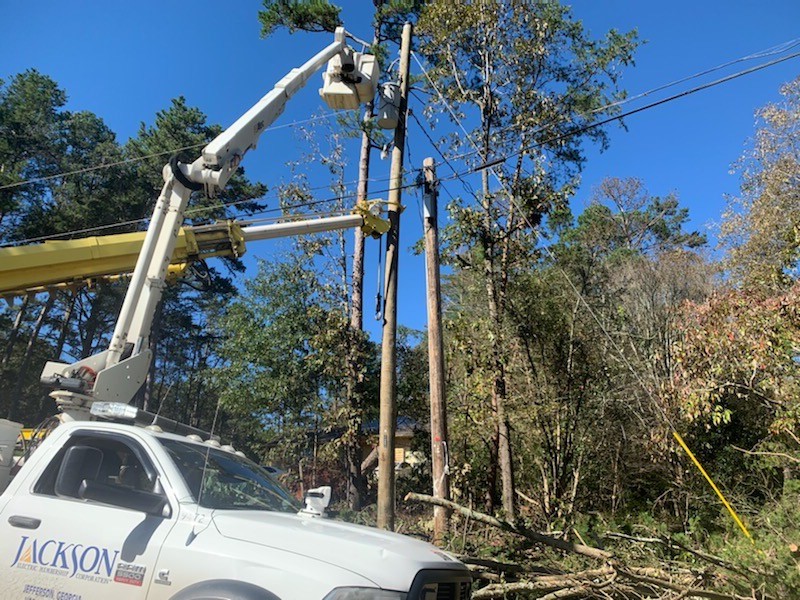By Elliott Brack
Editor and Publisher, GwinnettForum
FEB. 12, 2021 | Rural broadband in Georgia got a boost—a slight one—this week when Gov. Brian Kemp announced that two rural electric co-ops in Middle Georgia will be offering high speed Internet service to their 80,000 customers. With the General Assembly now in session, providing broadband to these areas ought to be the Number One priority for rural legislators, who must convince the rest of the General Assembly that their areas suffer dramatically without this high-speed Internet service.
 Beginning as early as this summer, fiber Internet service with speeds up to one gigabit per second will be offered by Central Georgia EMC and Southern Rivers Energy. But note that this doesn’t happen overnight. It will take up to four years to string fiber optics to this entire area. The two EMCs will be working in partnership with a broadband company called Conexon.
Beginning as early as this summer, fiber Internet service with speeds up to one gigabit per second will be offered by Central Georgia EMC and Southern Rivers Energy. But note that this doesn’t happen overnight. It will take up to four years to string fiber optics to this entire area. The two EMCs will be working in partnership with a broadband company called Conexon.
The initial construction will be in Monroe County. Other counties served by this new agreement include rural parts of Bibb, Butts, Clayton, Coweta, Crawford, Fayette, Henry, Jasper, Jones, Lamar, Meriwether, Monroe, Morgan, Newton, Pike, Putnam, Spalding and Upson counties. Note that many of these counties are near more urban areas.
While this recent announcement is a tremendous boost for people in 18 counties around and west of Macon, it is a small beginning, for the bulk of rural areas of Georgia are without broadband. There are 41 electric co-ops in Georgia. It’s estimated that 507,000 rural homes and businesses lack access to sufficient internet speeds.
And the very life of these under-served Georgians is threatened since the people in these areas cannot join the modern world and improve themselves without broadband service.
To fail to bring broadband in a speedy manner to other rural areas is to hold back these areas in so many ways. Without broadband, they cannot:
- Provide connectivity to sufficiently educate the area’s children with this modern tool;
- Permit residents to be able to improve themselves by working from home via the Internet;
- Have these residents get modern health care via the Internet;
- And in general, fail to allow these communities to have an equal standing for economic development, or attract modern new businesses, putting these areas even further behind the eight ball.
One of the problems of providing high speed internet is that it is costly to string fiber optics in rural areas because of the long distances between customers, as compared to tightly-wired urban areas. That is why the communications companies that provide fiber optic in urban areas shy away from rural areas….because of the low rate of profit on this service.
The Legislature in 2019 allowed local electric membership corporations to offer broadband service. Since they already serve the area with electricity, the co-ops are in a good position to offer this add-on service. Yet many EMC boards are reluctant to offer this expanded service. They need encouragement to understand that their expenditures will be sufficiently profitable.
Our nation changed when, led by Franklin Roosevelt’s New Deal, electric co-ops brought electricity to rural areas beginning in the late 1930s. These electric co-ops can now get funding from the Rural Utilities Cooperative Finance Corporation for providing Internet services.
Governor Kemp’s announcement of this expansion included funding of $30 million. The governor and the legislature need to encourage rural Georgia co-ops to expand such funding so that these areas can enjoy this modern broadband service, not later, but in the immediate future.
- Have a comment? Send to: elliott@brack.net










Follow Us